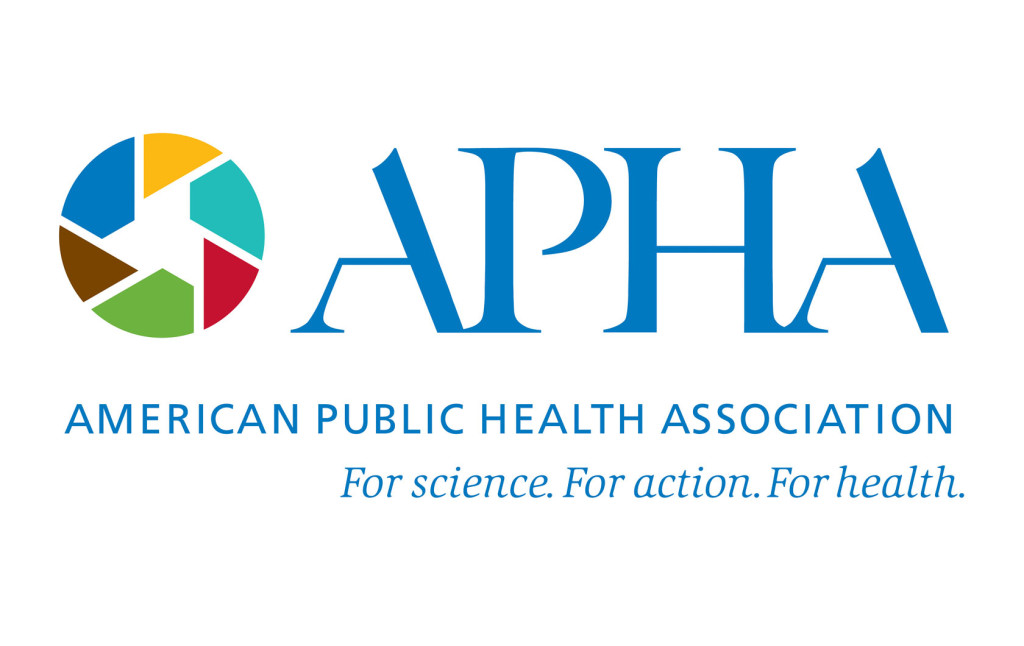CALIFORNIA UNIVERSITY TOBACCO-FREE POLICIES
To better understand compliance with university tobacco-free policies, this project engaged in in-depth discussions with students and employees on two California public 4-year universities and used digital surveillance to understand why people continue to smoke and vape on tobacco-free universities. Funding was provided by the California Tobacco Related Disease Research Program.
RESEARCH TEAM MEMBERS
Meet our interdisciplinary research team members that were involved in this project from shared fields of public health, cognitive science, data science, and policy and legal analysis.

Project PI:
Joshua Yang, PhD
Institution:
CSU Fullerton
Contact information:
jsyang@fullerton.edu
Team Members:
Raphael E. Cuomo, PhD
Vidya Purushothaman, MPH
Michael Haupt, MA
Qing Xu, MAS
Marijuana, Tobacco, and Vaping on Campuses
Tweets from 2015 to 2019 with geospatial coordinates in CA college campuses containing smoking-related keywords were collected from the Twitter Application Programming Interface (API) stream and manually annotated for discussions about smoking product type, sentiment, and behavior. Out of all tweets detected with smoking-related behavior, 46.7% related to tobacco use, 50.0% to marijuana, and 7.3% to vaping. (Cuomo et. al, 2021)
Explore the twitter discussion proportions of the top twenty colleges by tweet volume below.
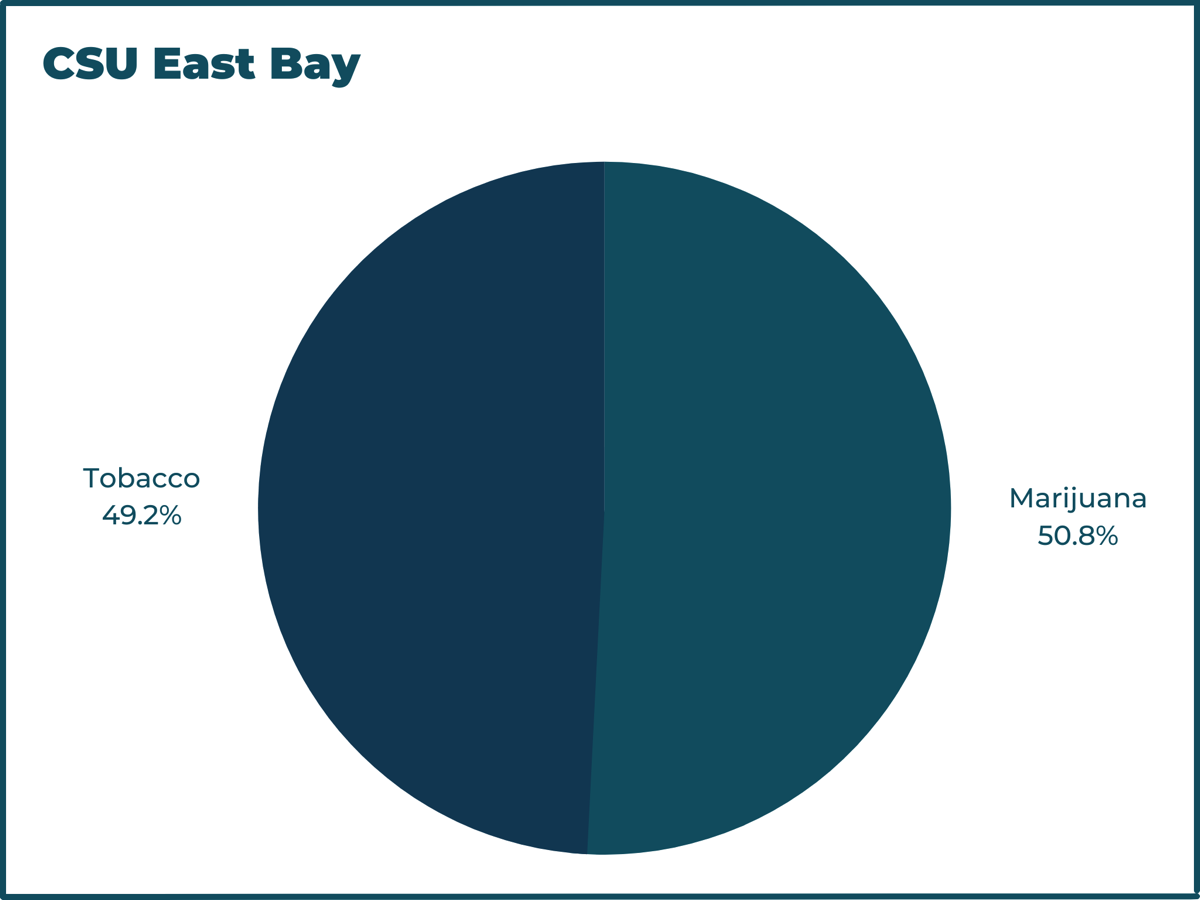
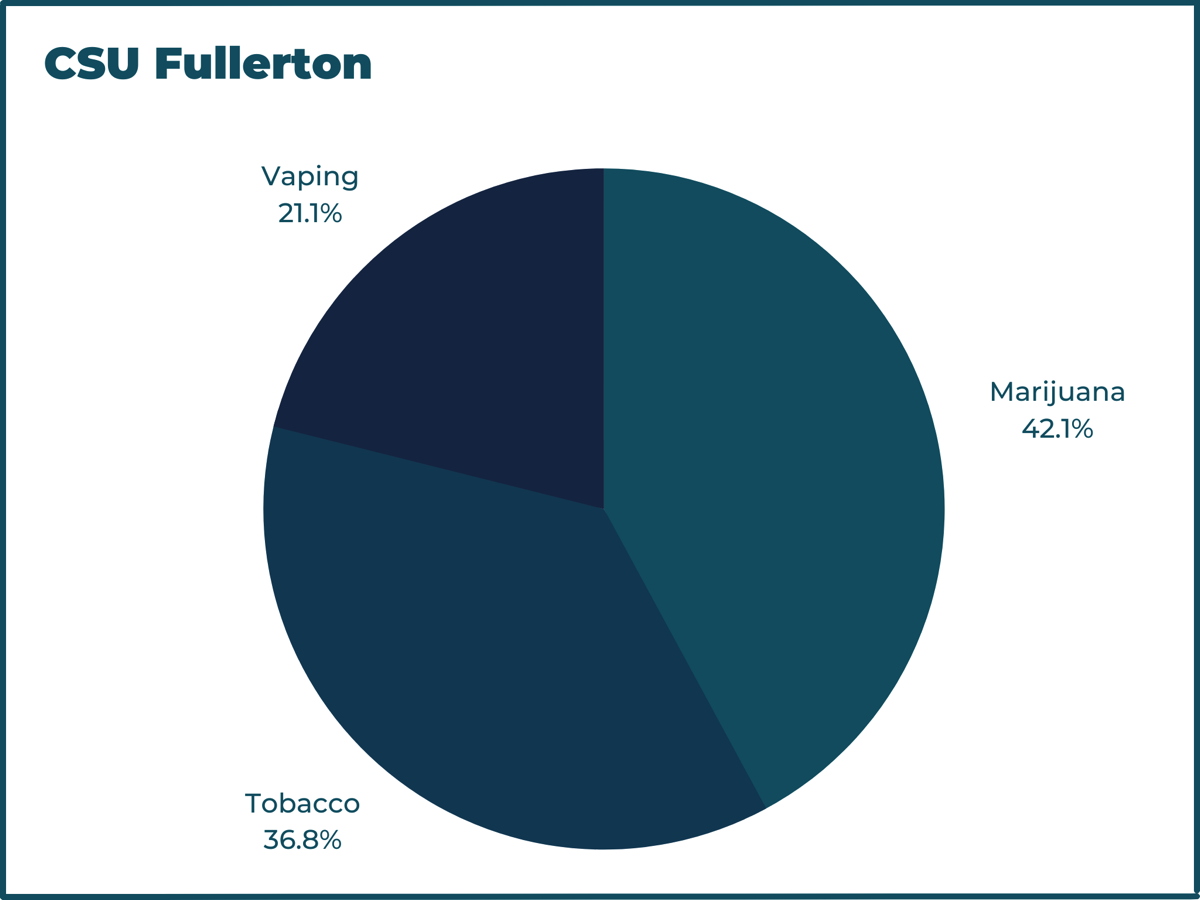
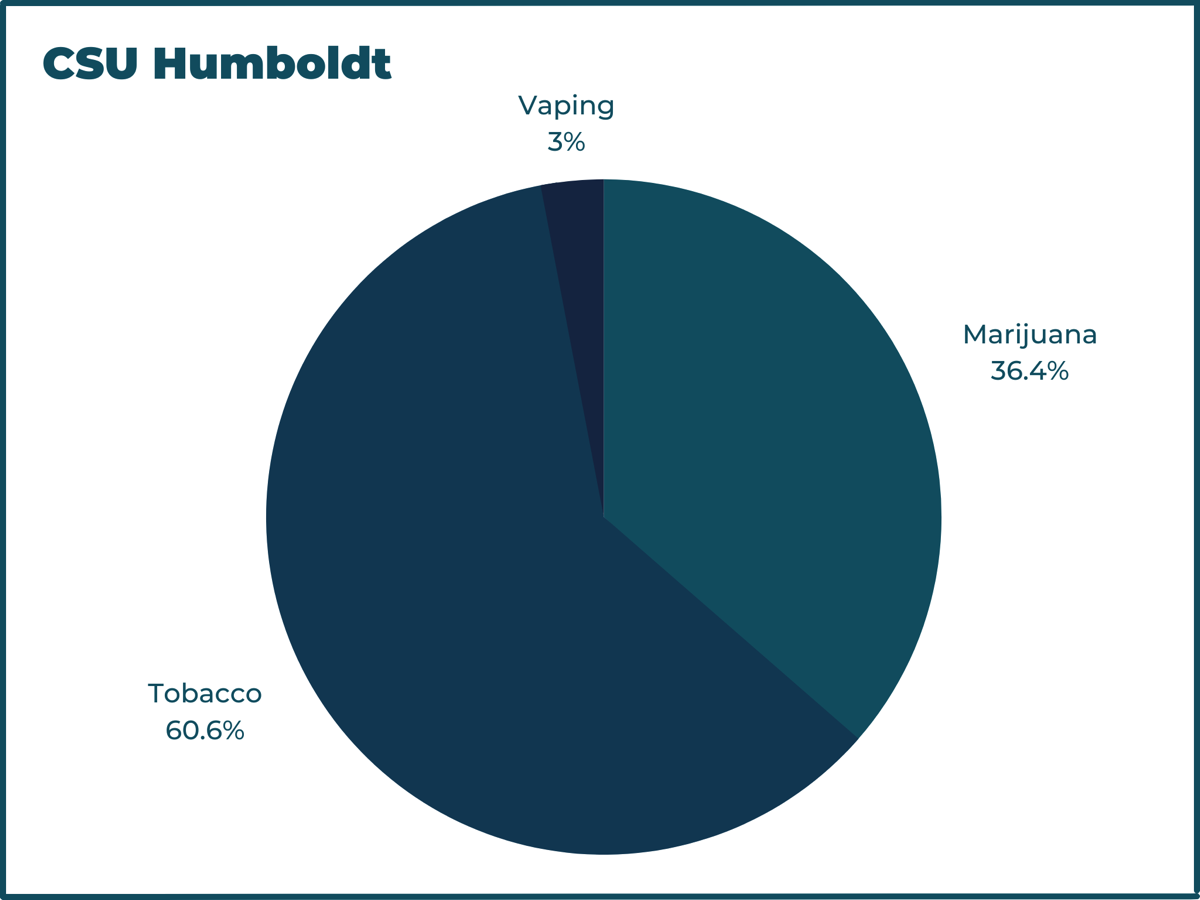
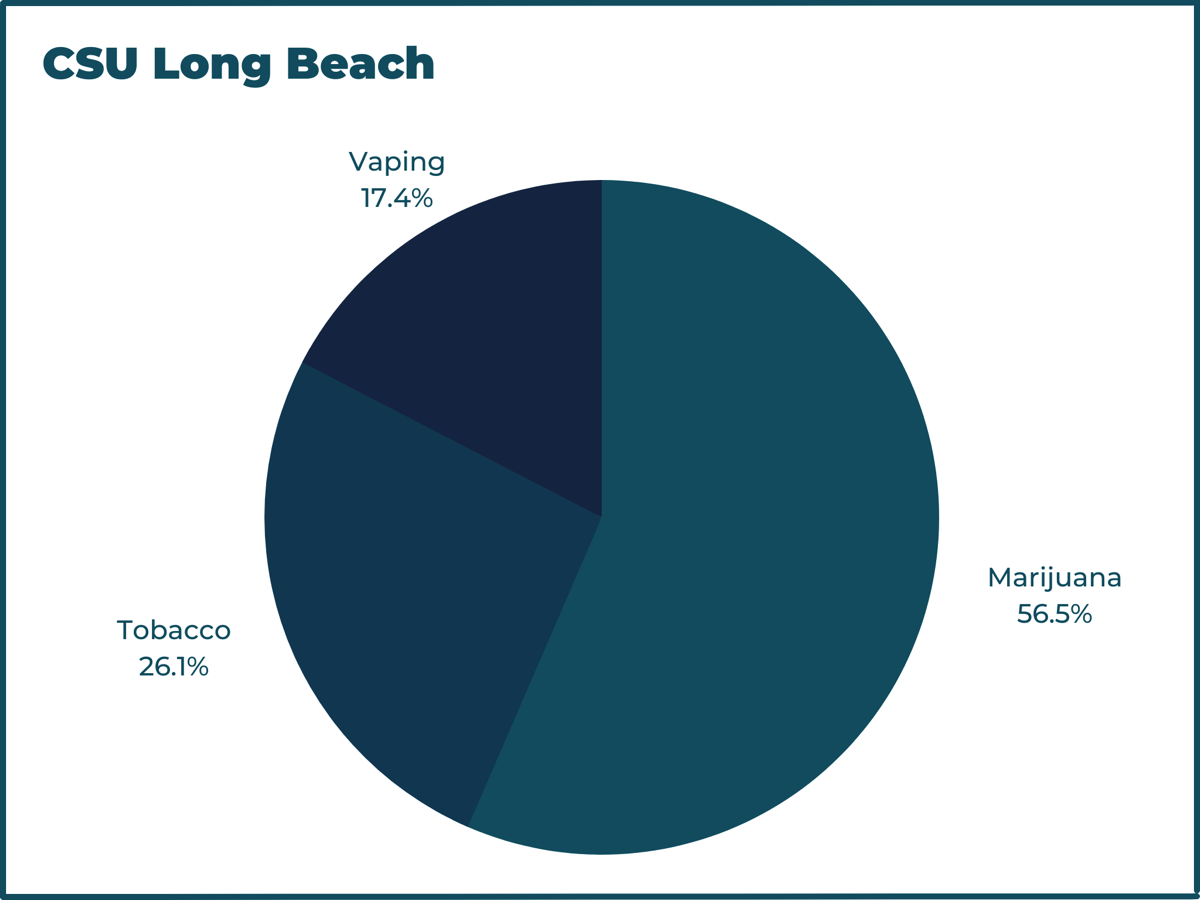
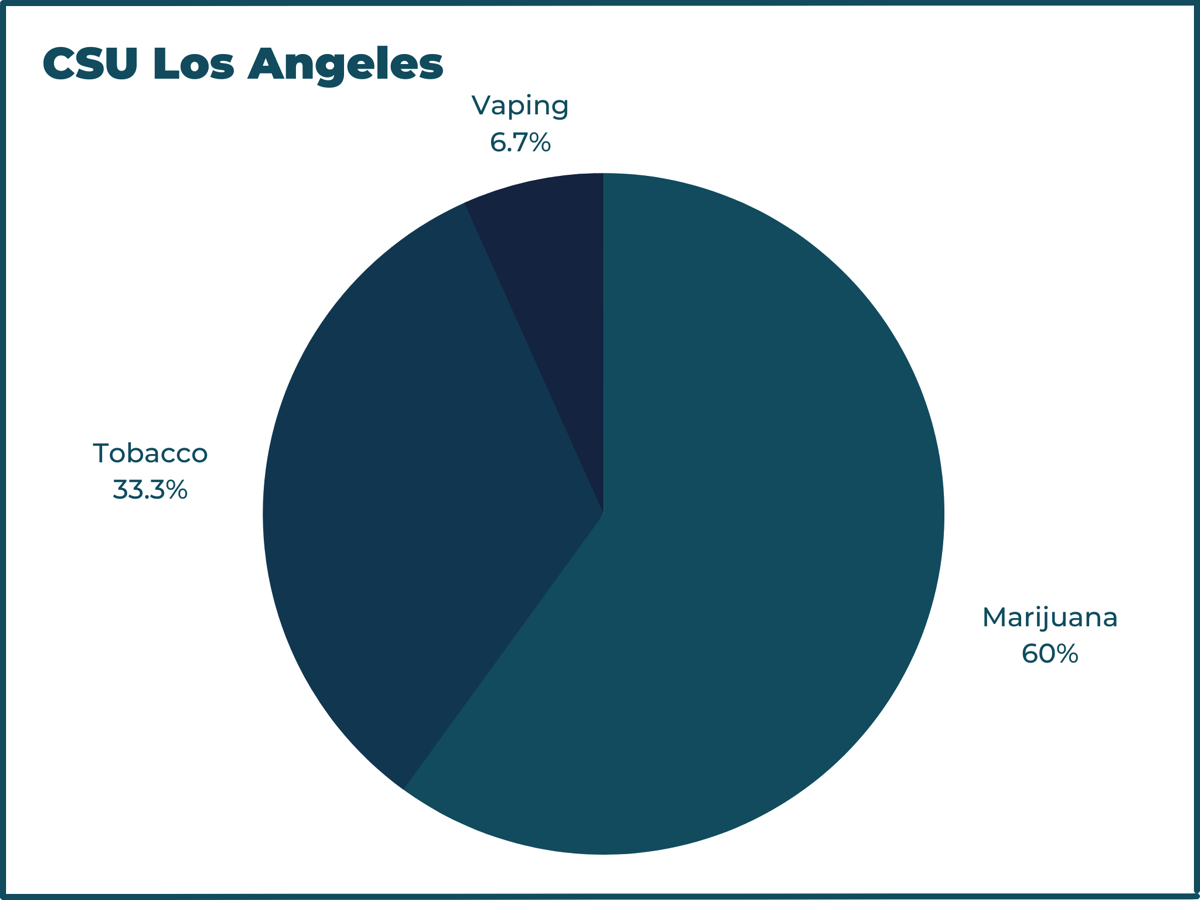
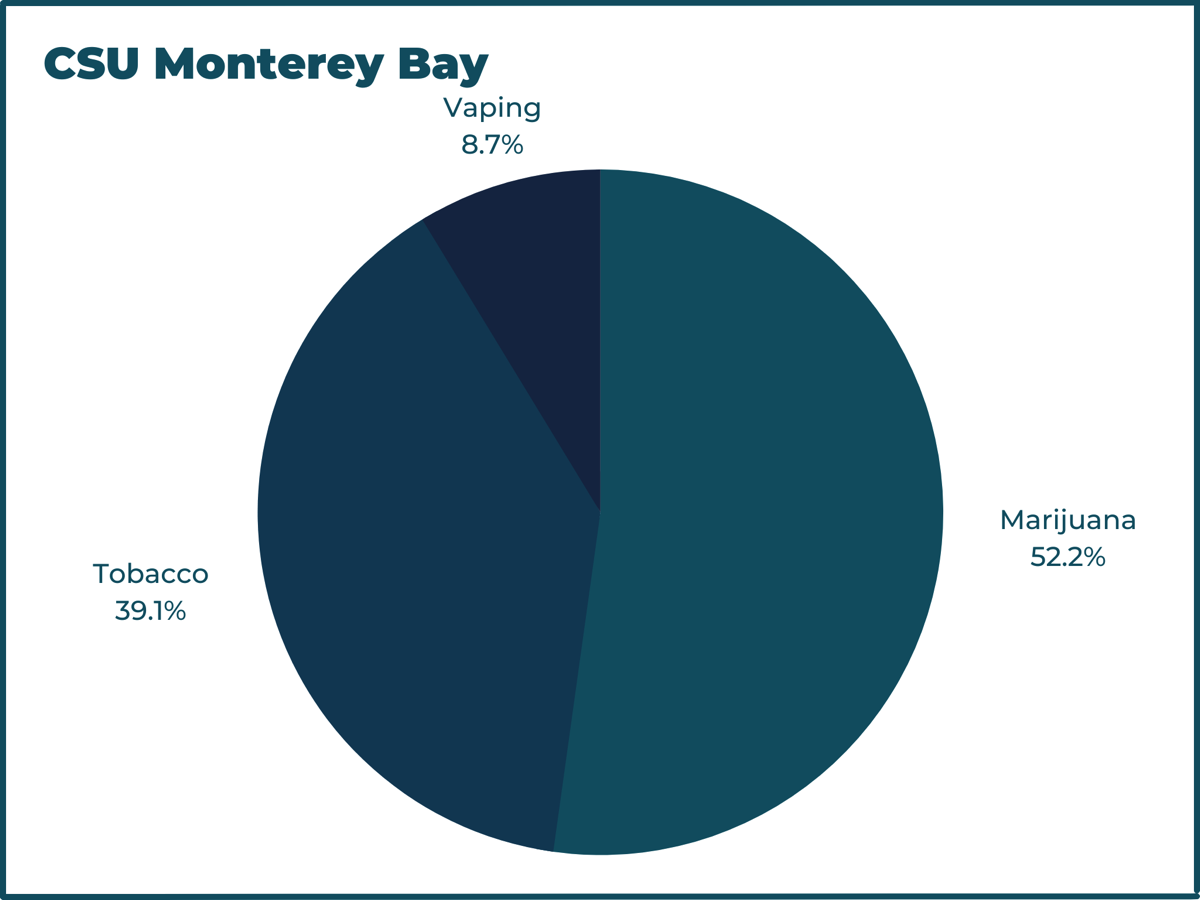
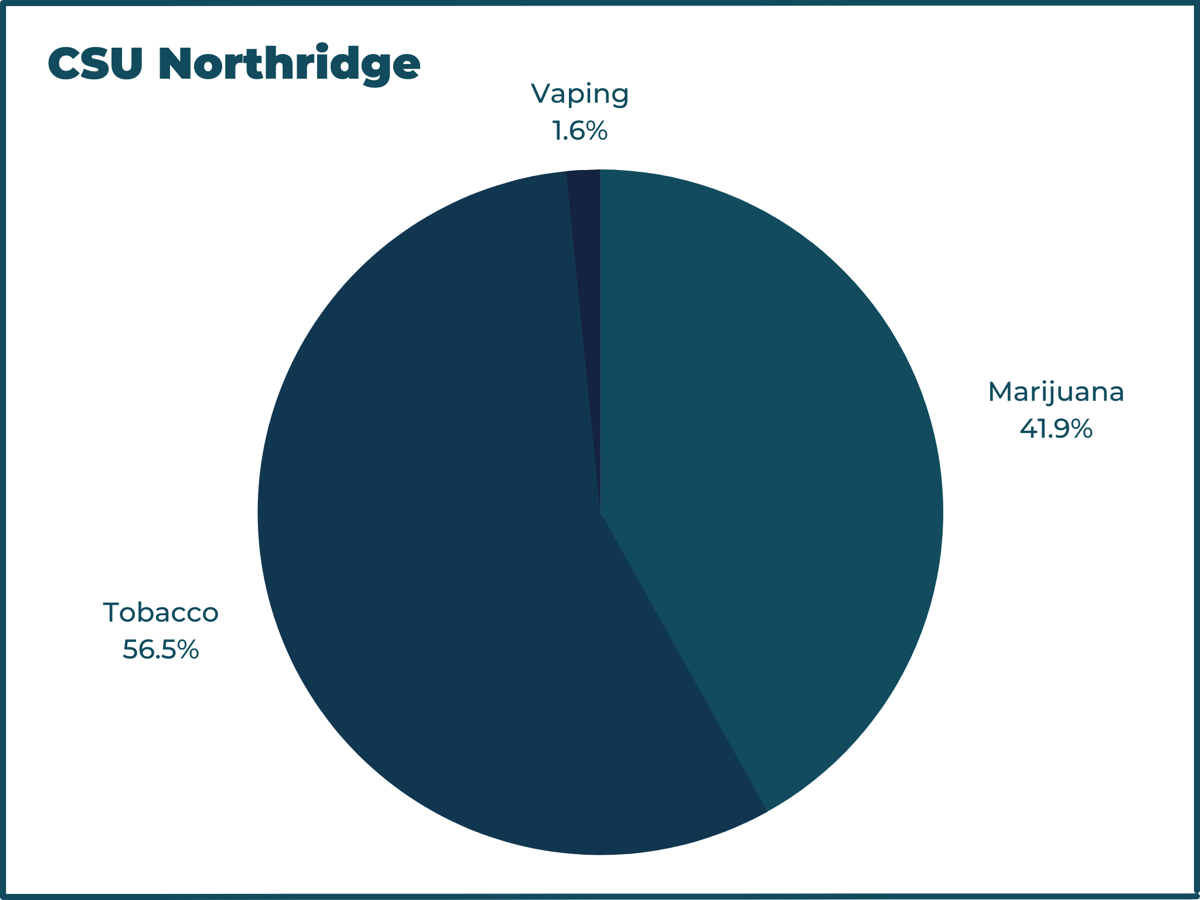
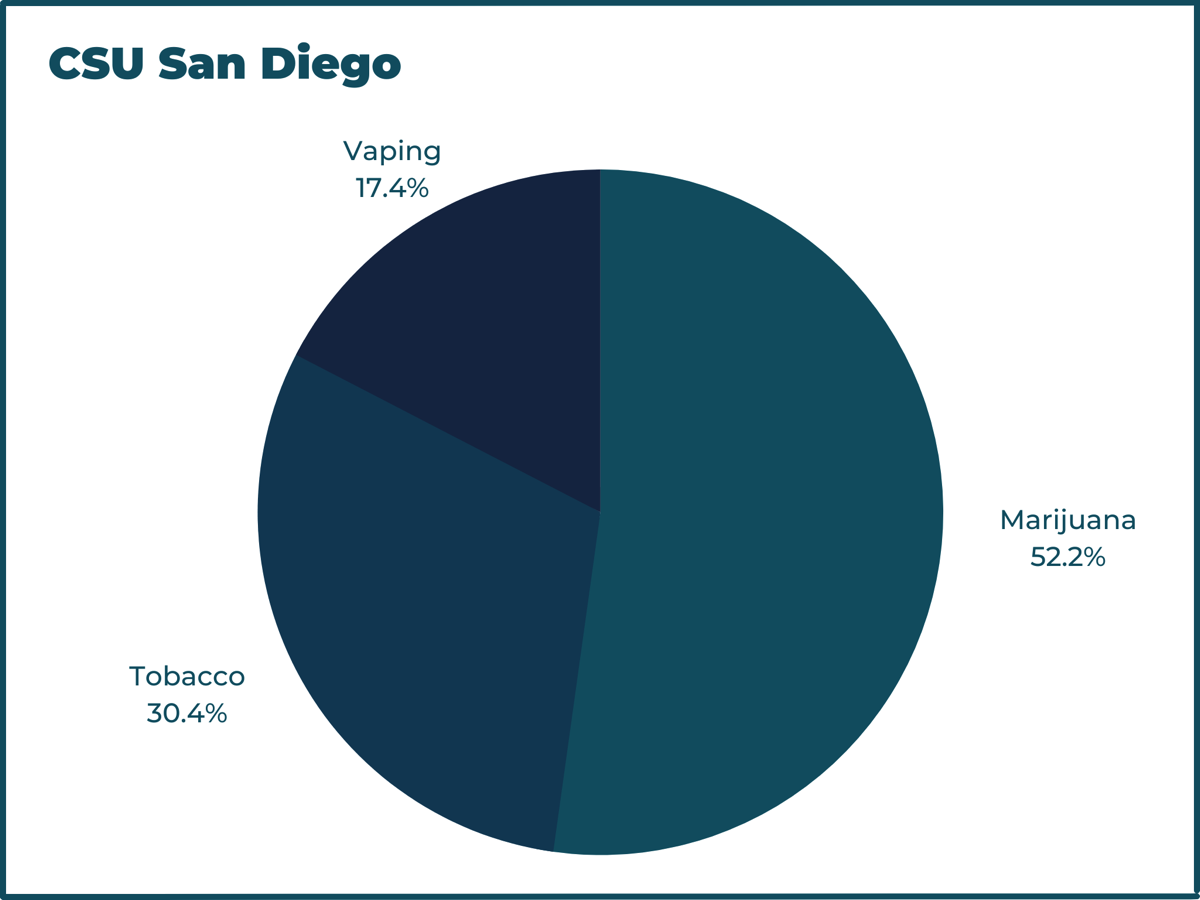
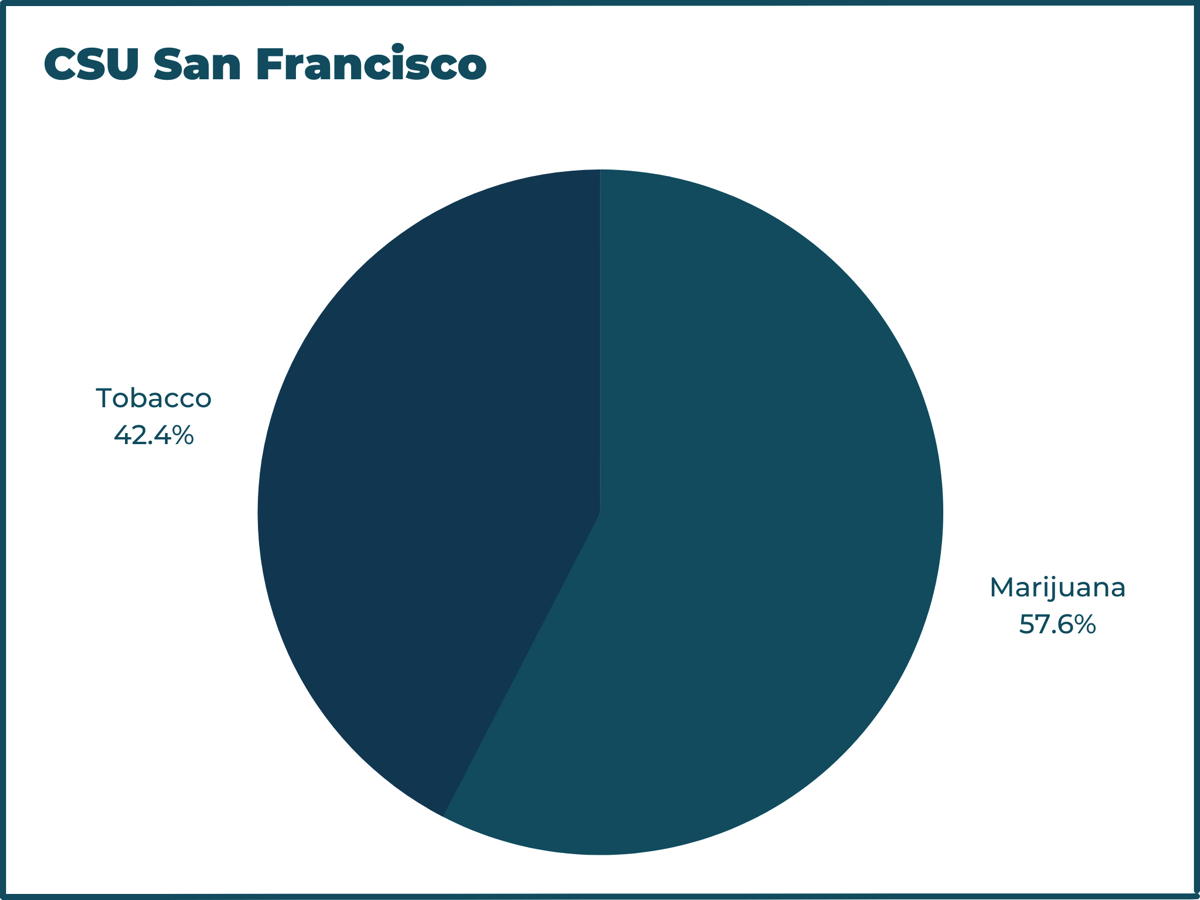
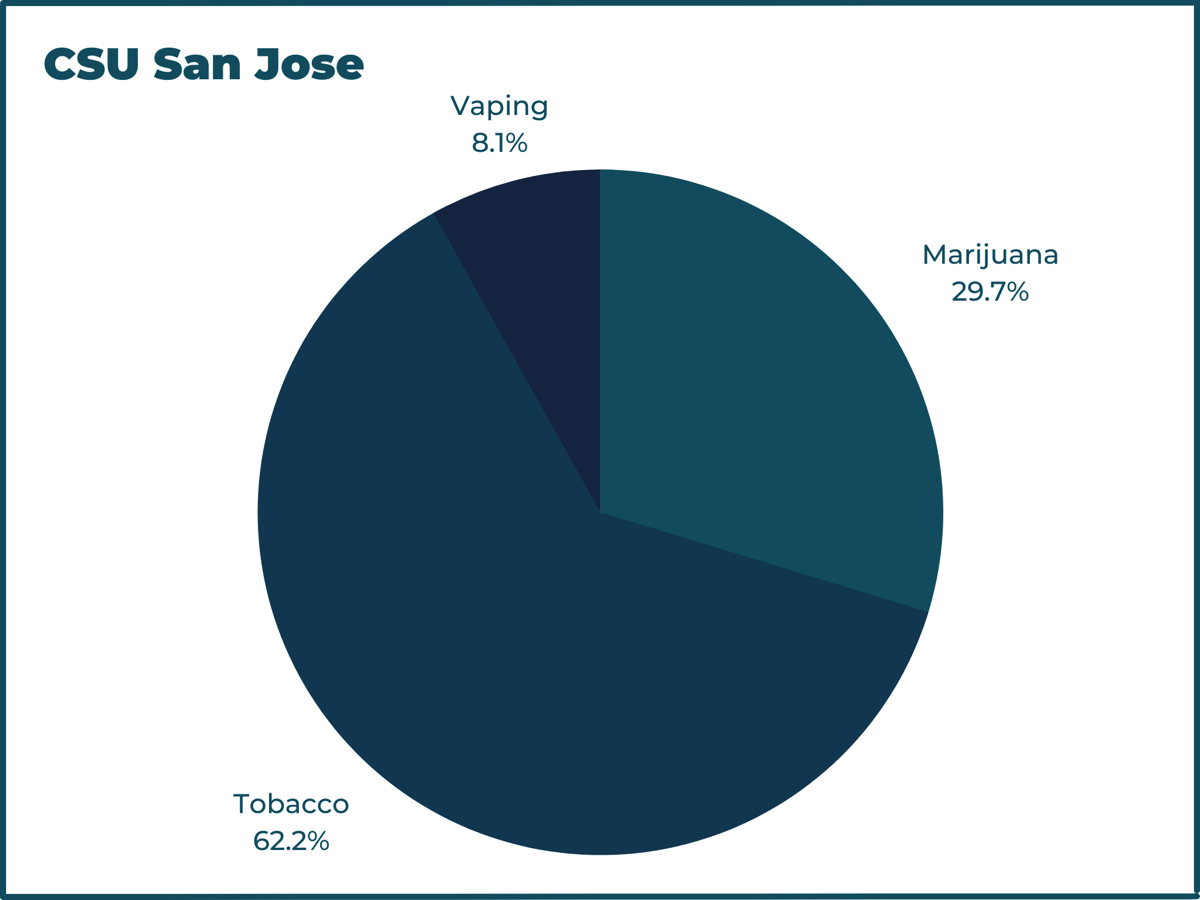
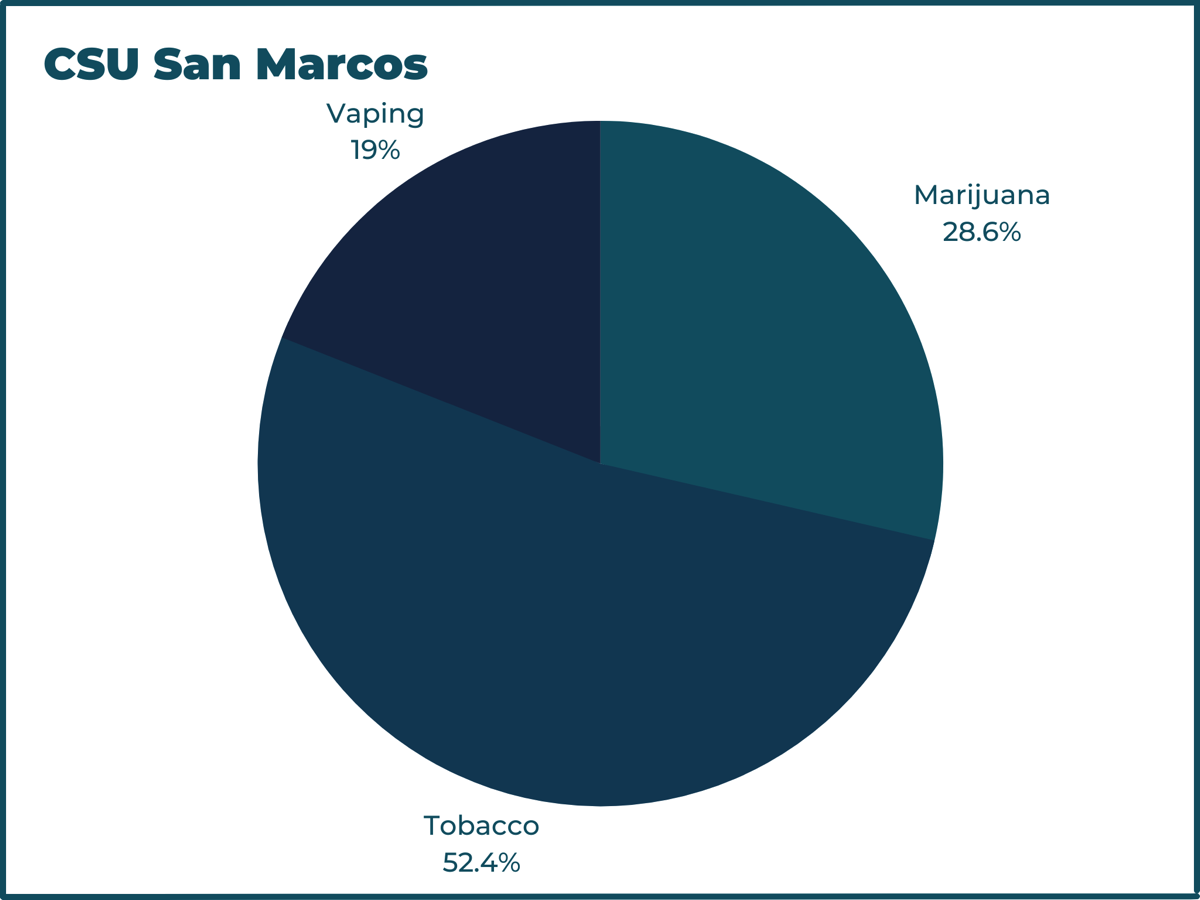
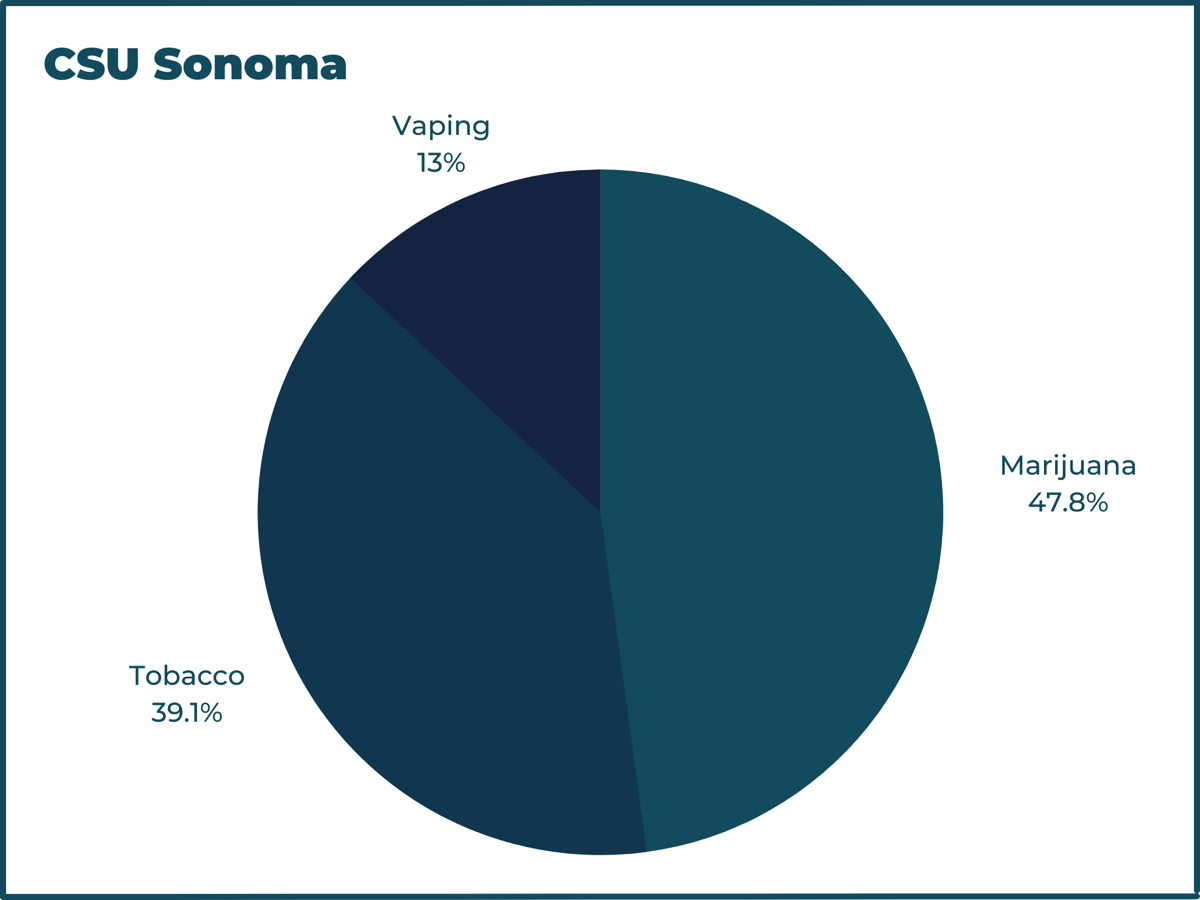
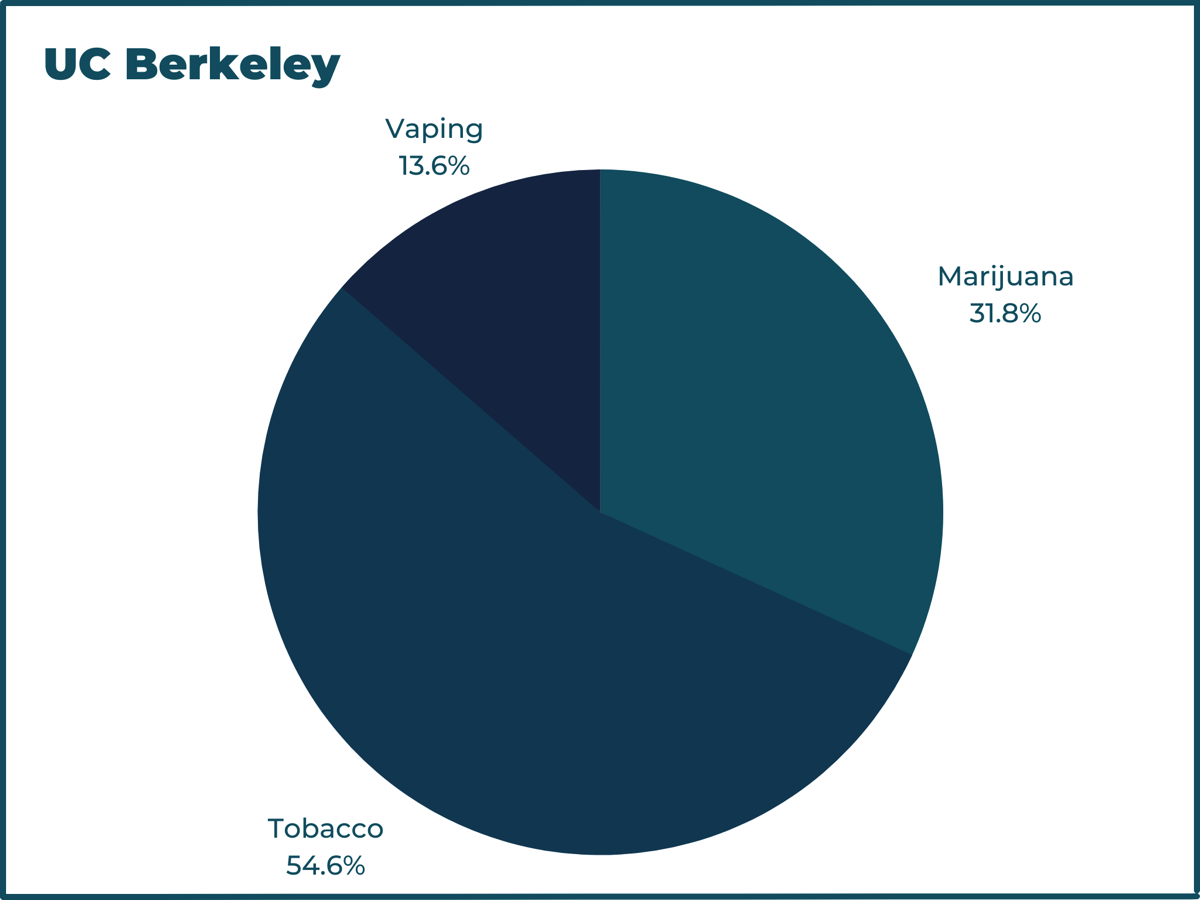
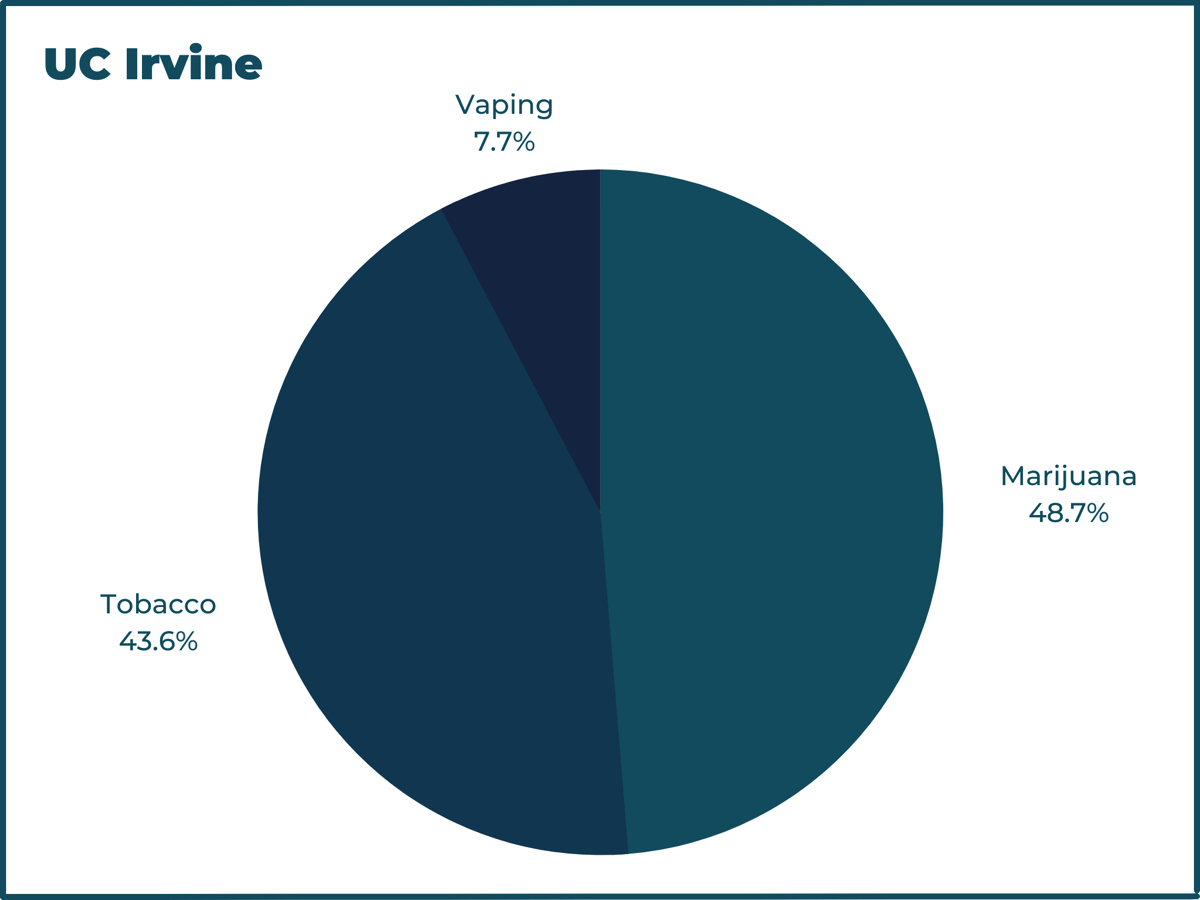
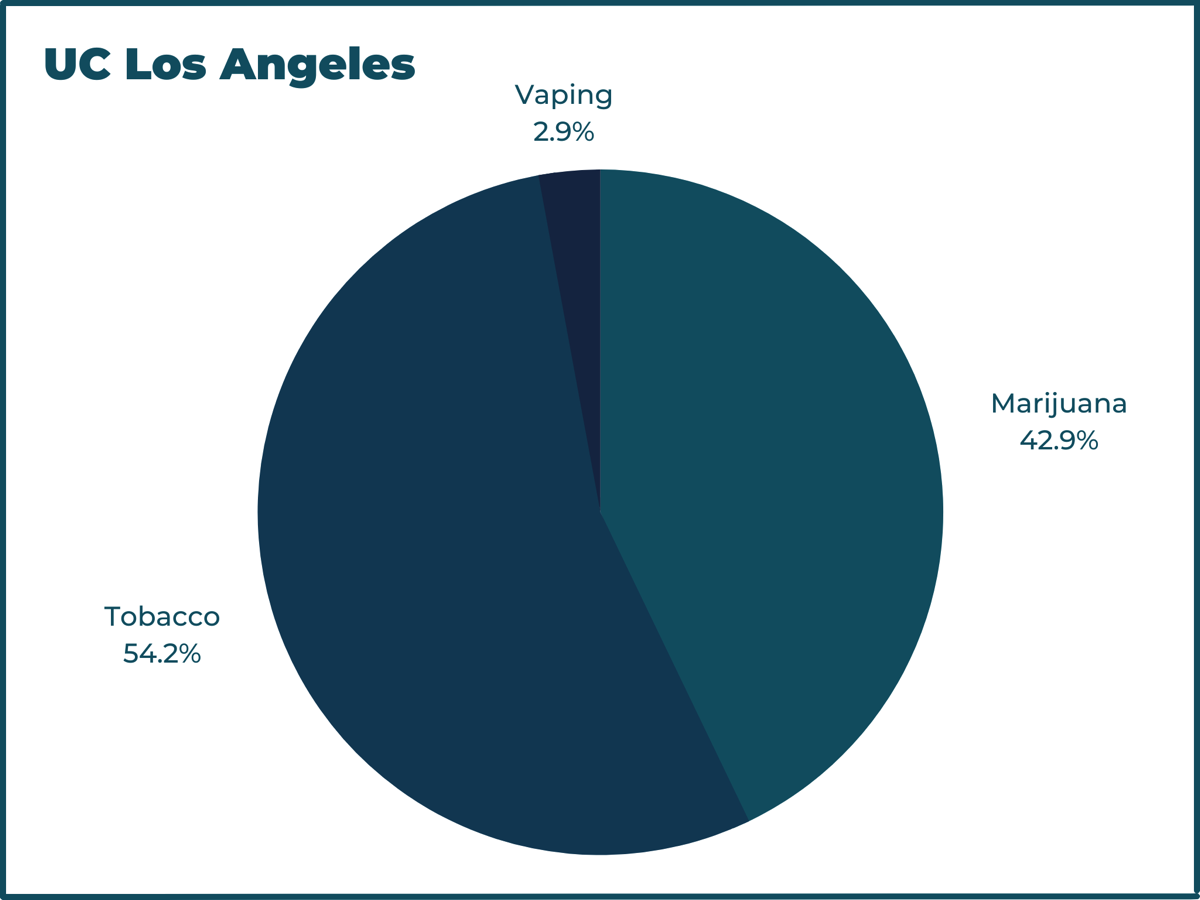
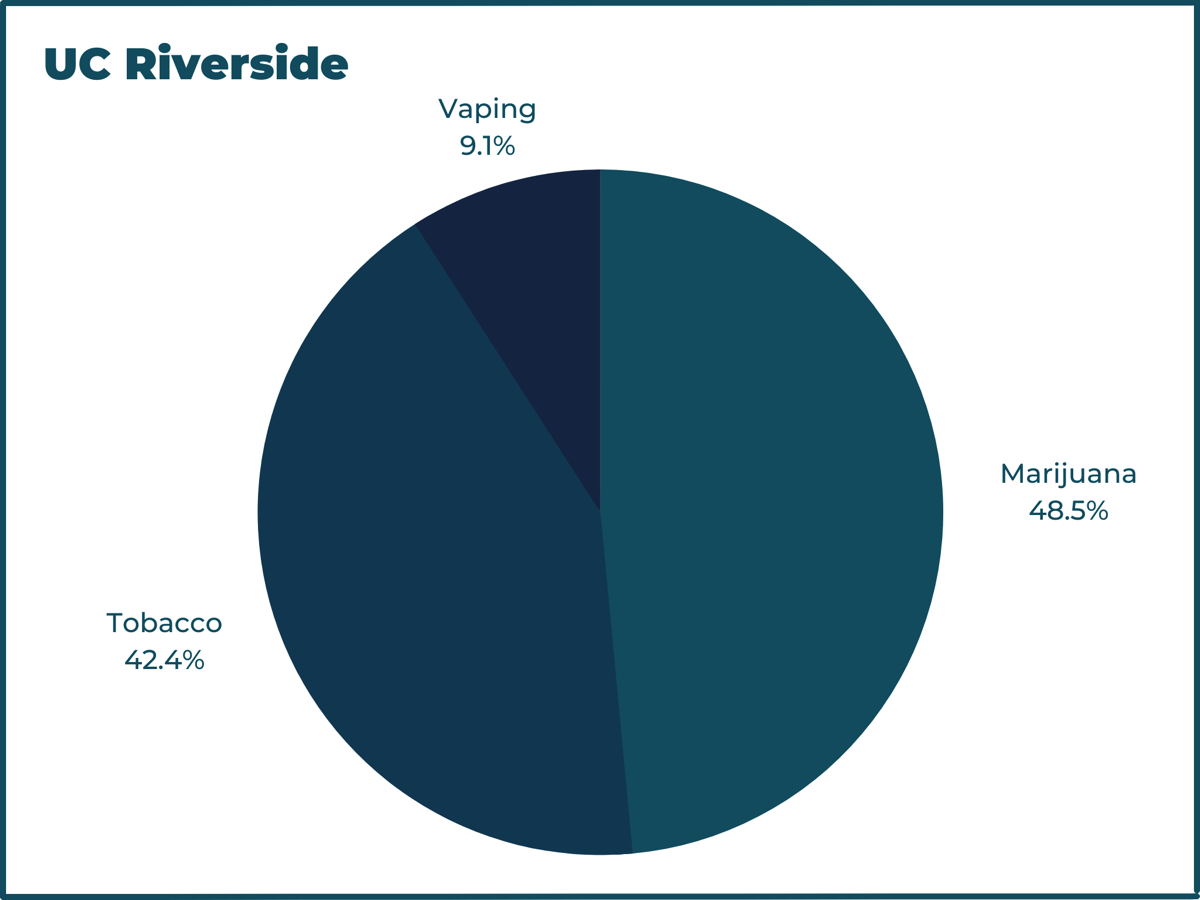
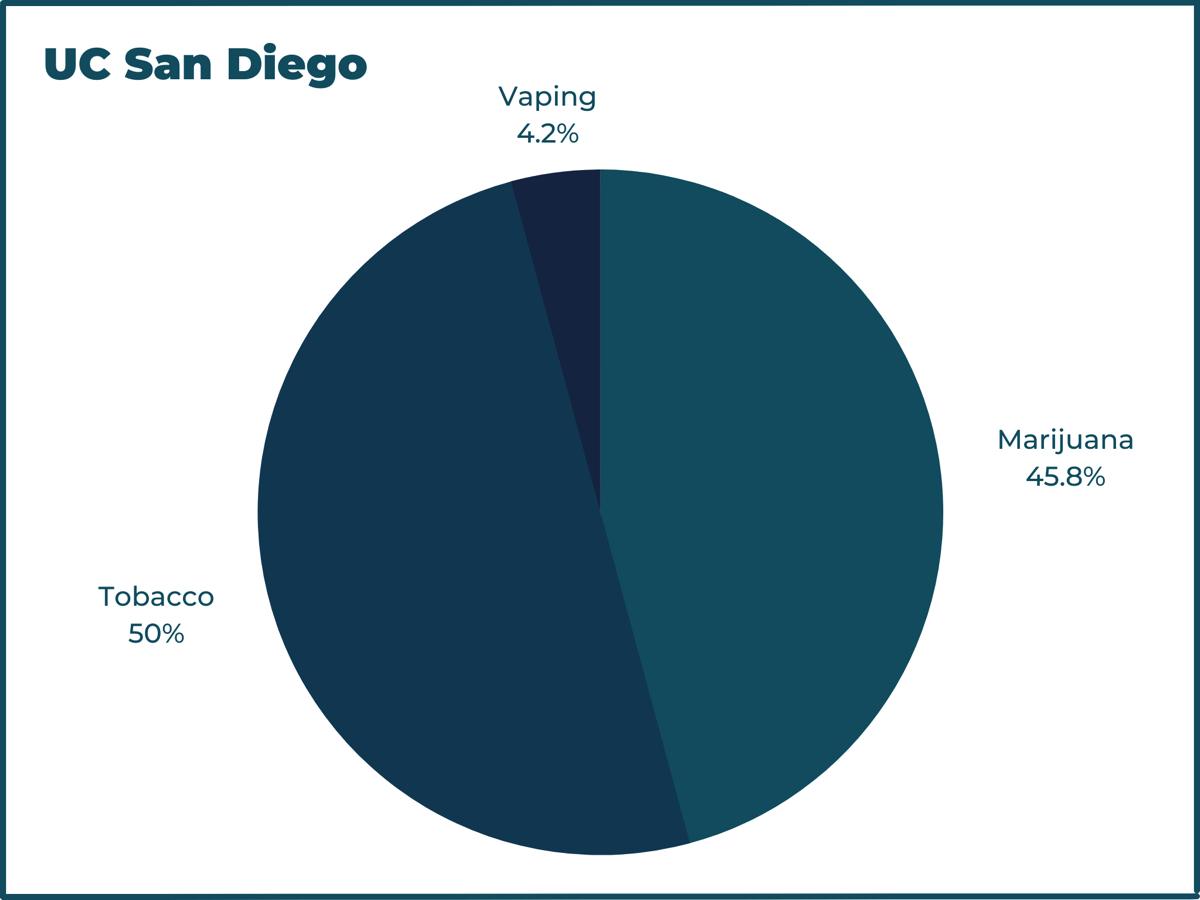
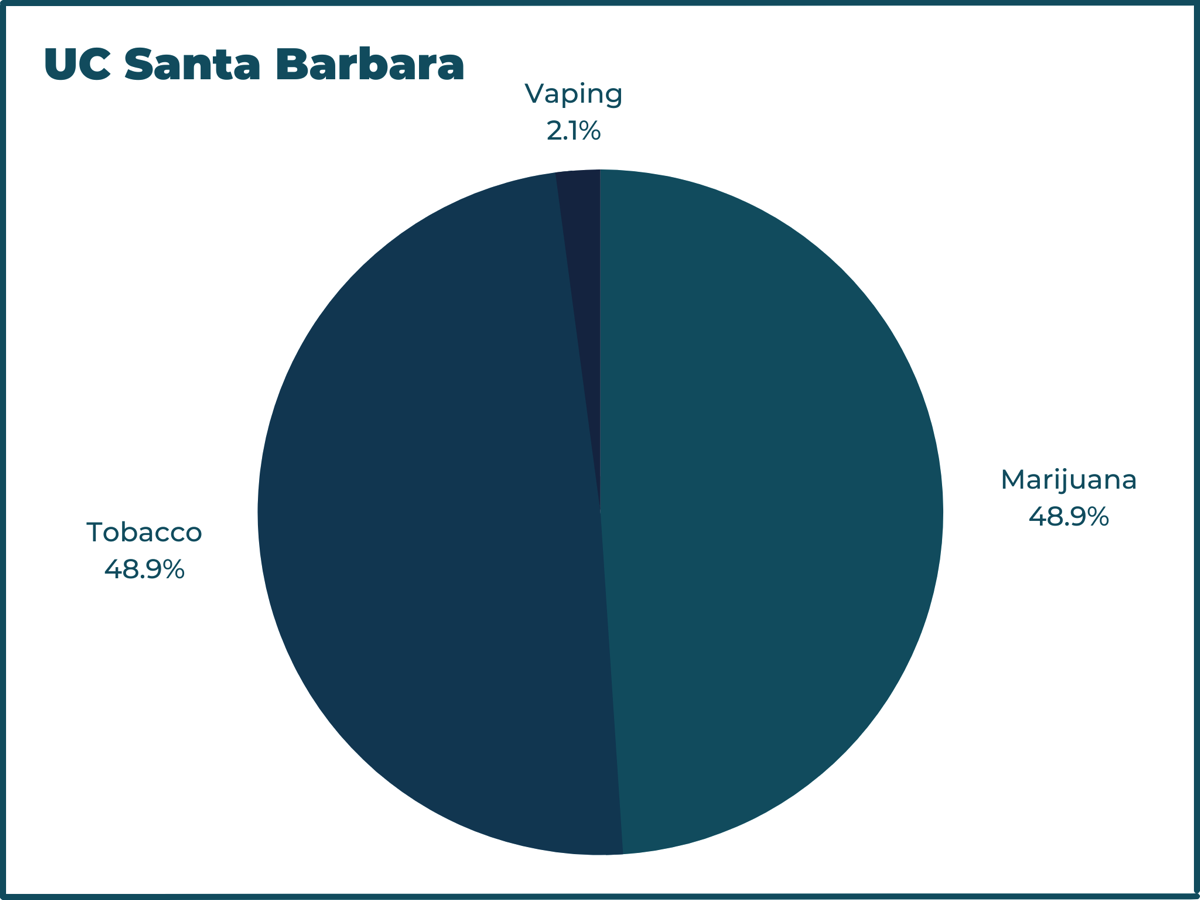
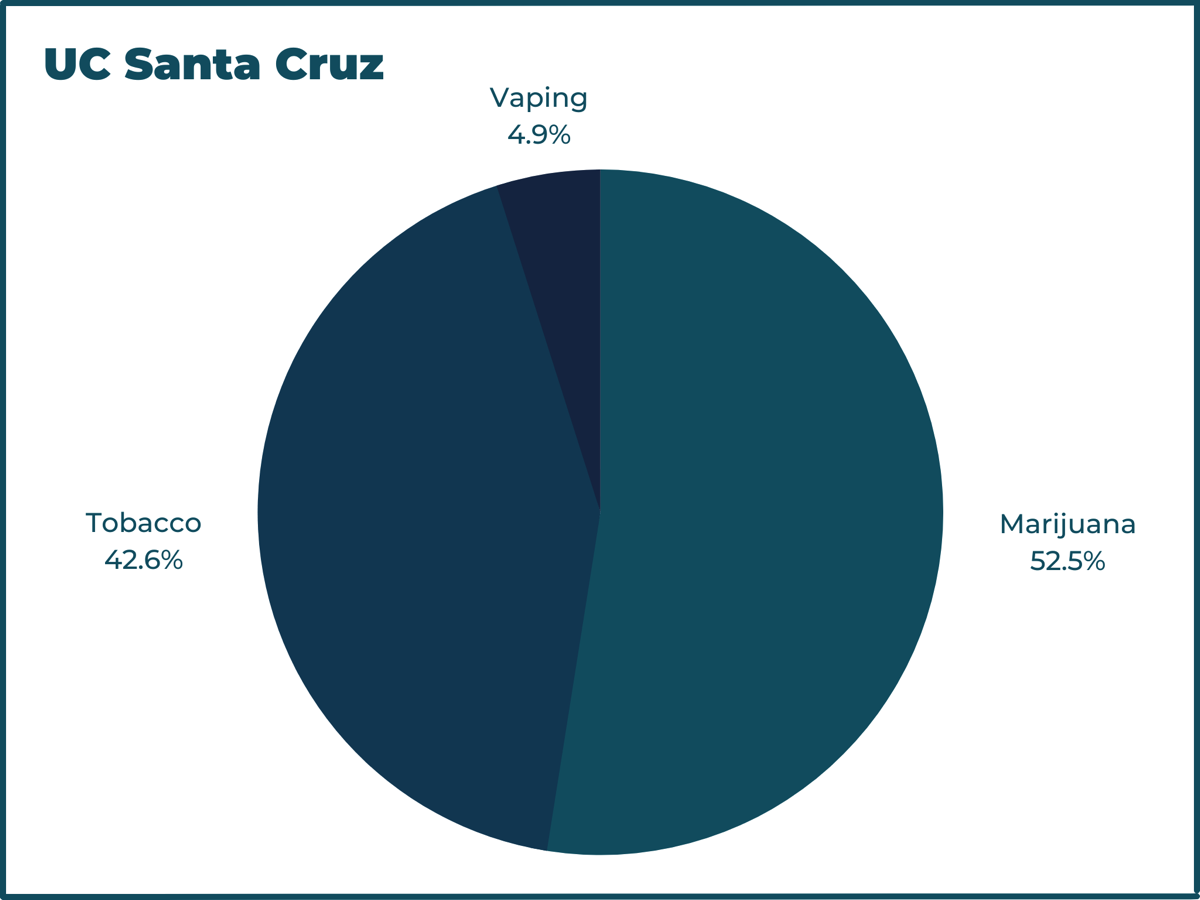
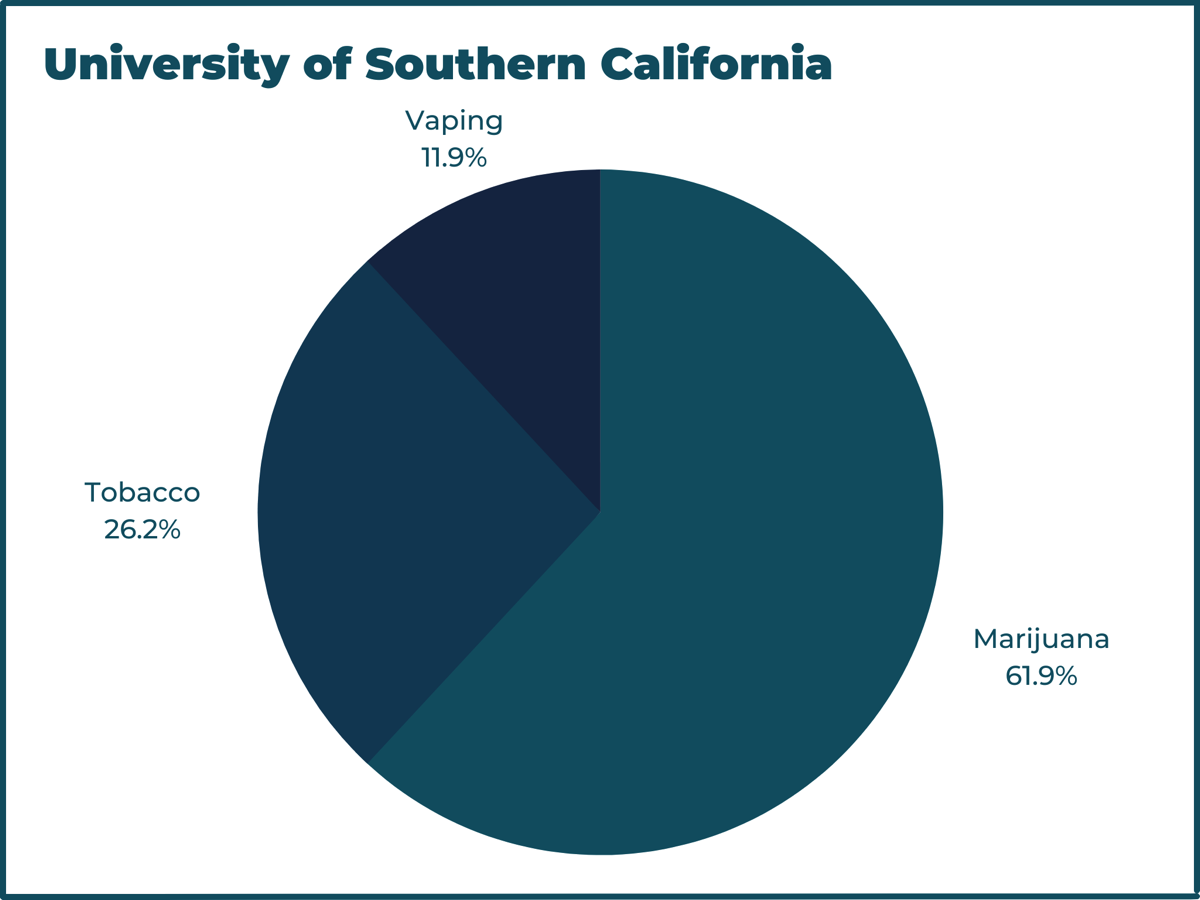
This section includes academic papers that have been published, are in press, are under review, or are in progress
This section includes oral and poster presentations at conferences, news and media coverage, and other research dissemination activities

Characteristics of tobacco-related tweets originating from California college campuses from 2015-2019
This section includes project datasets that can be downloaded for further research purposes. Due to different restrictions, some of the data has had fields removed. For details please contact study team
